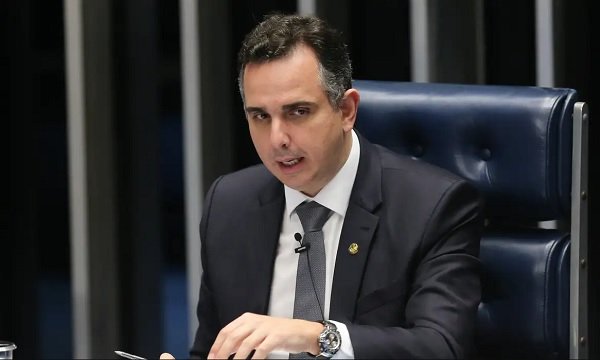As the legislative year draws to a close, Brazil’s National Congress faces a demanding final week, with lawmakers striving to address an extensive agenda before the recess begins on Monday (23/12). Key economic measures, including the fiscal package and 2025 budget, dominate the schedule, alongside tax reform adjustments and a state debt renegotiation bill. Meanwhile, speculation about a cabinet reshuffle gains momentum, with President Lula’s administration expected to make significant changes in early 2025. Adding to the challenges, the government is mobilizing to counter controversial bills passed in the House.
This Content Is Only For Subscribers
To unlock this content, subscribe to INTERLIRA Reports.
Release of Amendments
Negotiations between the government and parliament regarding the release of amendments have postponed the vote on the government’s fiscal package to the final week before the recess. Additionally, lawmakers need to vote on the Budget Guidelines Law (LDO) and the 2025 Budget (LOA) by Friday (20). The LDO sets the guidelines for drafting the following year’s budget.
Spending Controls
After focusing on public security projects, the House of Representatives is expected to analyze proposals from the government’s spending cut package this week. The Speaker of the House, Arthur Lira (PP-AL), has already selected the rapporteur for two of the three proposals. With urgent motions approved, the votes are expected to take place between Tuesday (17/12) and Wednesday (18/12). The proposals include mandatory biometric identification for granting and maintaining benefits, salary adjustments linked to spending controls to ensure that minimum wage increases align with limits on public expenditure growth, the prohibition of new tax benefits in the event of a fiscal deficit, and permission to block parliamentary amendments in proportion to spending cuts applied to other expenses. A third proposal, introduced as a Constitutional Amendment Proposal (PEC), includes changes to rules for salary bonuses, guarantees that up to 25% of the Fundeb — the main funding source for basic education — is allocated to maintaining full-time schools, and introduces a provision to combat “super salaries” in the public sector.
Tax Reform
In addition to the spending cut package, the House is set to review on Tuesday (17/12) the changes introduced by the Senate to one of the tax reform regulatory bills. On Sunday (15/12), after meeting with representatives, the rapporteur Reginaldo Lopes (PT-MG) stated that the House would “revise” some of the exemptions and discounts added by the Senate to prevent the general VAT rate from exceeding the 26.5% cap.
State Debt
In the Senate, the agenda includes the analysis on Tuesday (17/12) of the state debt renegotiation bill, which was approved in the House this week with amendments. The bill provides for interest relief and allows debts to be paid in up to 30 years.
Cabinet Reshuffle
Speculation around a cabinet reshuffle continues as President Luiz Inácio Lula da Silva recovers from surgery in São Paulo. So far, the only confirmed change in Brasília is the departure of Paulo Pimenta from the Secretariat of Social Communication of the Presidency. However, other ministries are expected to undergo changes next year, likely starting in February, after the elections for the presidencies of the House and Senate, which could once again shift the balance of power in Congress and Lula’s allied base.
– Secretariat of Social Communication: Paulo Pimenta is set to leave his position. The likely replacement is Sidônio Palmeira, Lula’s campaign strategist.
– Secretariat of Institutional Relations: This key role, responsible for the government’s political coordination, is currently held by Alexandre Padilha. The political coordination efforts have been criticized in Congress. Silvio Costa Filho, the current Minister of Ports and Airports, is a likely replacement. Costa Filho, a federal deputy and member of the Centrão.
– Ministry of Health: If Alexandre Padilha leaves his current position, he may be appointed to the Ministry of Health. Padilha, a physician, would replace Nísia Trindade, who has faced criticism in Congress and within the government for her management, which includes the wastage of millions of vaccines and a historic rise in dengue fever cases.
Controversial Bills in the Senate
The Ministry of Justice and President Lula’s allies are working to block or amend in the Senate four controversial bills passed by the House this week, backed by Speaker Arthur Lira. Seen as a backlash from the weapons political group against the federal government, the proposals address politically sensitive issues. One bill grants amnesty for unregistered firearms and allows suspects under investigation to buy weapons. Another weakens federal control over measures to combat criminal factions and provides legal immunity for undercover officers. Additional proposals include extending compulsory hospitalization for mental disorders from 3 to 20 years and authorizing chemical castration for sex offenders. The government considers the measures highly controversial and plans to either halt them in the Senate or introduce substantial amendments.
Analysis:
As the legislative year concludes, Brazil’s National Congress faces a crucial final week with a packed agenda. Lawmakers are focused on key economic measures, including the fiscal package and the 2025 budget, as well as revisions to tax reform. The vote on the Budget Guidelines Law (LDO) and the 2025 Budget (LOA) is critical, not only for fiscal stability but also for signaling the government’s priorities. However, negotiations over the release of amendments have delayed these votes, highlighting the complex political negotiations required to secure approval.




